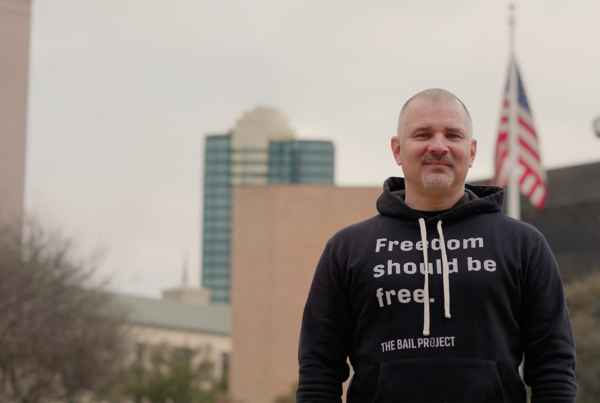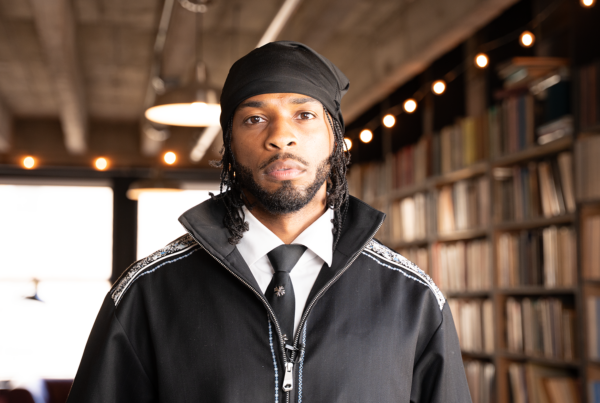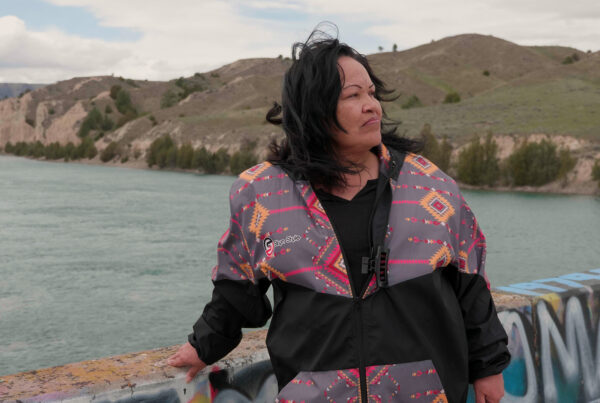Video Transcript
As I walk in the footsteps of Dr. Martin Luther King, Jr., his words ring in my ear: injustice anywhere is a threat to justice everywhere. Dr. King knew the injustice of pretrial detention. He was incarcerated dozens of times and held on cash bail, including in 1963 when he wrote his famous “Letter from a Birmingham Jail.”
Today, as I walk over this bridge in Selma, almost half a million people are incarcerated in the US simply because they cannot afford bail. They are also walking in Dr. King’s footsteps, pacing their 6×8 jail cells hoping someone, anyone, can come up with the money to buy their freedom. MLK said that the arc of the moral universe is long, but it bends toward justice.
It’s been over half a century since he walked this bridge. It is time for us all to grab hold and bend. It’s time we stop criminalizing race and poverty and end cash bail. I’m Asia. My grandfather was from Birmingham, Alabama and I work for The Bail Project.
Asia Johnson, a staff member at The Bail Project, reflects on Dr. Martin Luther King’s legacy and the hardships he faced because of the US cash bail system. Dr. King was arrested numerous times for standing up against racial disparities. What some people may not know, however, was that Dr. King was also directly impacted by the cash bail system. Dr. King’s infamous “Letter from a Birmingham Jail,” was written while he was detained in an Alabama jail cell and unable to afford to post bail. Like thousands of others who are currently detained pretrial, Dr. King posed no danger to the community and was not going to flee the state. This video discusses how people today continue to experience the same hardships as Dr. King faced despite decades of efforts to reform the criminal justice system.
Thank you for engaging with our content. People like you make a better world possible – a world where justice is not determined by someone’s wealth. The Bail Project is not only an immediate lifeline for people held on unaffordable cash bail, but a growing megaphone for public education and social change. If you have the means and found value in our content, please consider becoming a donor today.











